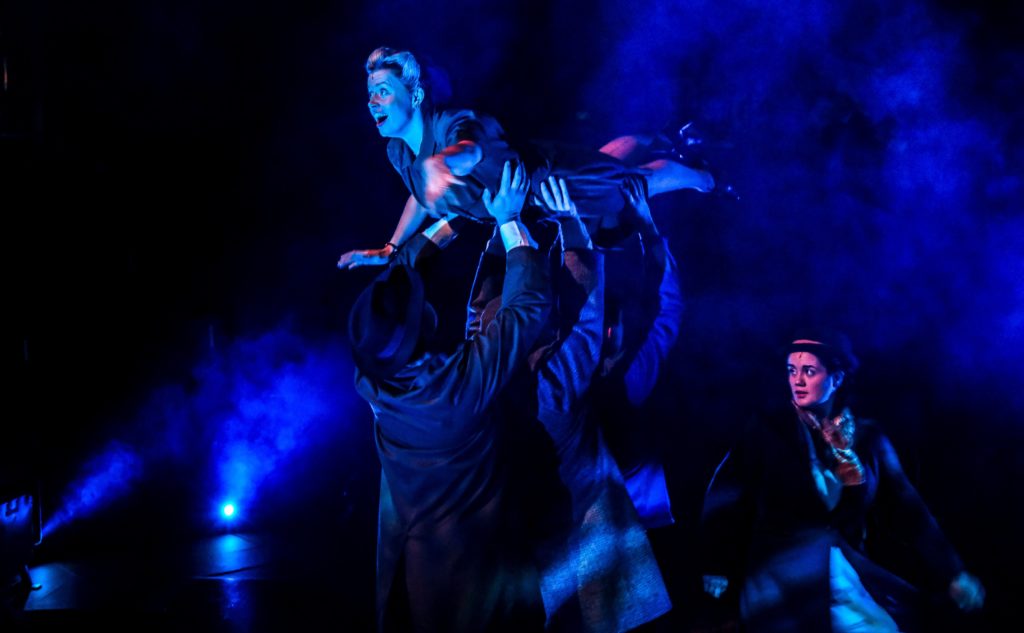
Noel Coward’s Brief Encounter, Stephen Joseph Theatre, Scarborough, on the right track until August 27. Box office: 01723 370541 or at sjt.uk.com
THIS is SJT artistic director Paul Robinson’s take on Emma Rice’s stage adaptation of Noel Coward’s buttoned-up story of destiny, temptation and forbidden love, Brief Encounter, presented in a co-production with Theatre by the Lake, Keswick, and Octagon Theatre, Bolton.
In Kneehigh Theatre’s 2007 premiere, hosted by the West Yorkshire Playhouse, writer-director Rice favoured black-and-white cinema scenes; mock adverts and puppetry; music-hall song and Rachmaninoff; utterly sincere playing of the thwarted love affair, and post-modern send-ups of the beloved 1945 film’s clipped vowels and love-a-duck supporting characters. She had a band and a trampoline too (hidden away in a railway coal heap). A case of Rice’s crisp snap, crackle and pop.
In the Round, Robinson foregoes film scenes and clipped vowels, but plays to one of the SJT’s strongest suits from the previous artistic directorship of Chris Monks: the use of actor-musicians, as well as pulling out all the stops that worked so well in the SJT’s account of Patrick Barlow’s The 39 Steps.
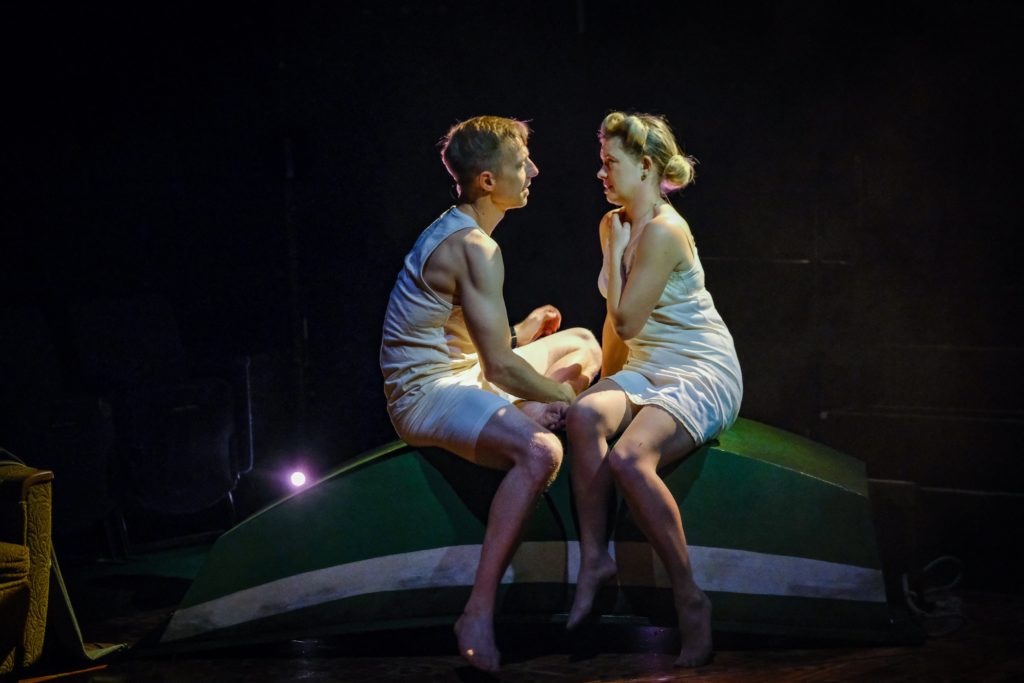
Not only are the magnificent cast of seven the jack and jill of all trades; they are the masters and mistresses too. All but the two leads take on at least two roles; between them, they play 11 instruments.
Musical director Alex Weatherill – you may remember him as the dame in York Stage’s 2020 pantomime Jack And The Beanstalk – takes to the piano with double bassist Shelagh Revell at his side to set the scene with familiar jaunty songs from the Forties.
As with David Lean’s film, Rice begins at the end of the love affair, the return home to decent but dull husband Fred Jesson (Robert Jackson), telling the dream-crushed Laura (Anne-Marie Piazza), “you’ve been a long way away…thank you for coming back to me”.
Well, it’s been a long time since 2007, so thank you, Paul Robinson, for bringing Rice’s Brief Encounter back to us.
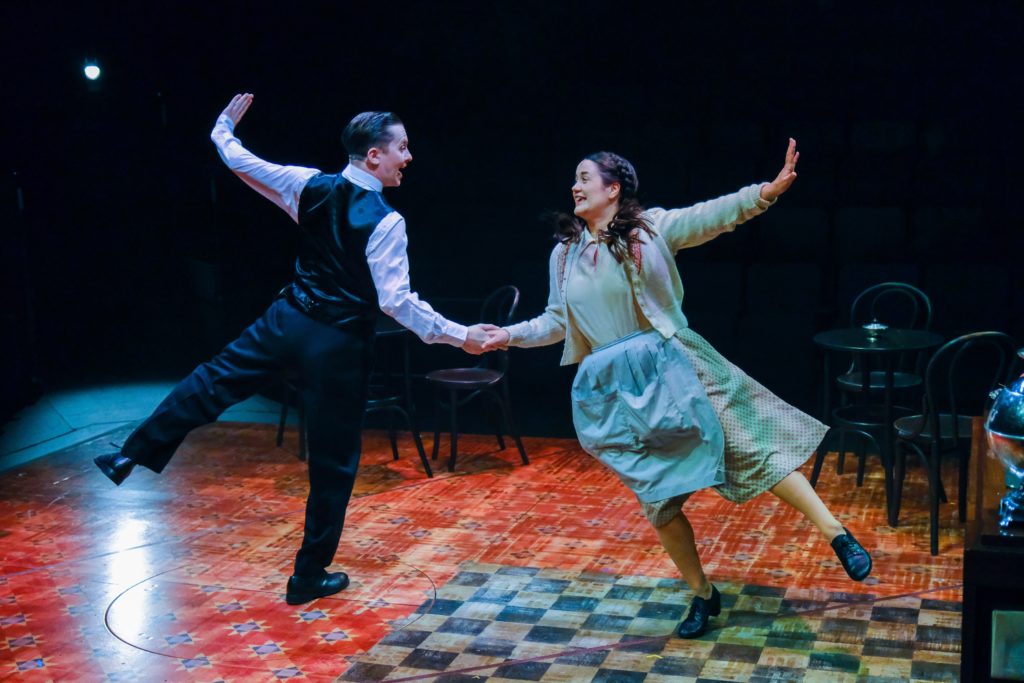
Rice likes her theatre to walk the trapeze wire, live more than a little dangerously. Robinson’s version is more carefully measured, beautifully balanced, witty and tangy, nostalgic but utterly true to Coward’s underlying story of his own repression that still resonates. Hence the tug of melancholia, even desolation, too.
All the while, Robinson and his cast revel in Rice’s sense of fun and high jinks, adding a shot of magic realism into the heady cocktail as Laura and doctor Alec (Pete Ashmore) are thrown backwards when first passing each other – as if a fateful field force is at play – to convey how their chance meeting at a railway station will “hurl them headlong into a whirlwind romance that threatens to blow their worlds apart”.
Later, Laura is suddenly held aloft, capturing her state of rapture, in Erin Carter’s inspired movement direction. Choreography would be more apt for the credit, given the regular interjection of Coward’s musical numbers, arranged with a jazz age flair by composer and sound designer Simon Slater, whether for the familiar Any Little Fish, Mad About The Boy, Go Slow, Johnny and A Room With A View, or his musical settings of Coward poems, from No Good At Love to So Good At Love, Romantic Fool to Always.
“All the romance of the original – with added tea and buns!” promises the programme’s centrespread, but that very much undersells the full zest of what Robinson has brought to what he calls “Coward’s Chekhovian portrayal of relationships and matters of class”.
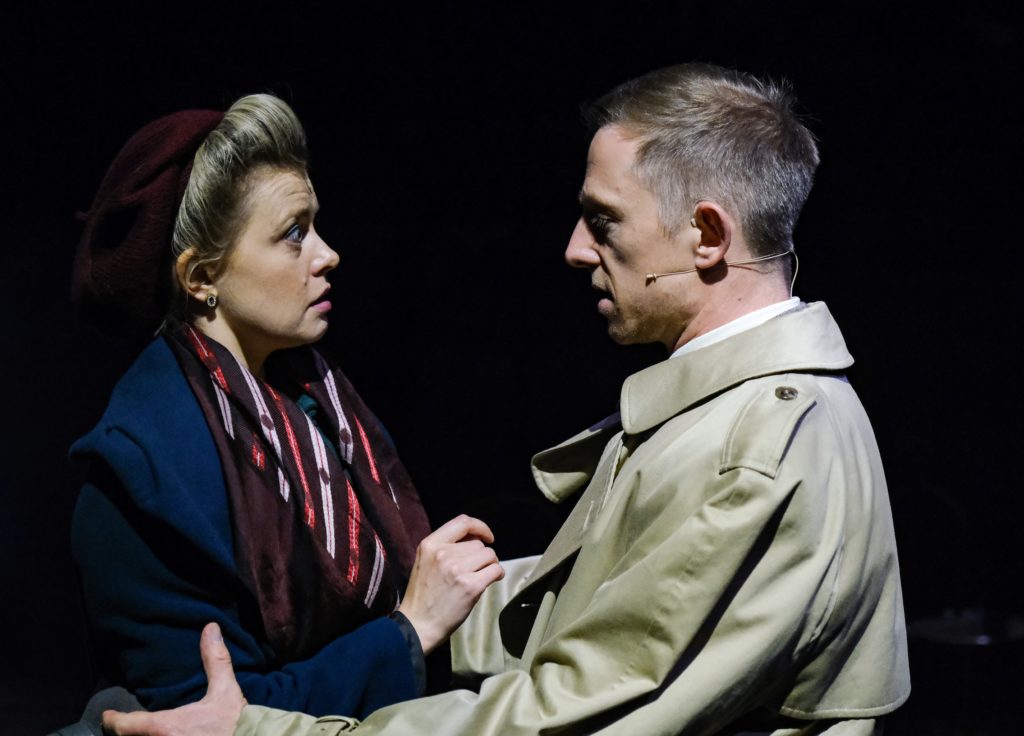
Not only all that delightful song and dance, but also a greater variety of regional accents and his decision to switch the station setting to Yorkshire, platform announcements et al that hint at York.
Rice drew on both Coward’s script for Brief Encounter and its original source, Still Life, his short play in five scenes from 1938, for a romantic comedy-drama that highlights three love stories: the forlorn, clandestine illicit love of Alec and Laura, married but not to each other; the Wife of Bath shenanigans of “the couple who’ve been around the block”, Natasha Lewis’s tea-room queen bee, Myrtle, and Jackson’s chirpy station manager, Albert; and the first blushing pangs of love for Lara Lewis’s waitress, Beryl, and Joey Hickman’s cheeky young porter, Stanley.
In his CharlesHutchPress interview, Robinson talked of “really exploding all those emotions of being in love, making it not only visually explosive but tonally too”, and his production’s combination of the physical and the mental, the visual and the verbal, does exactly that.
There is both darkness and light at play; Piazza and Ashmore’s Laura and Alec make their love at once heightened but painfully real too. By way of contrast to all their tortured seriousness, yet giddiness of love that must stay secret, comes the joyous malarkey of the rude mechanicals around them: the comic interplay of the unguarded flirting of Myrtle and Albert and Beryl and Stanley.
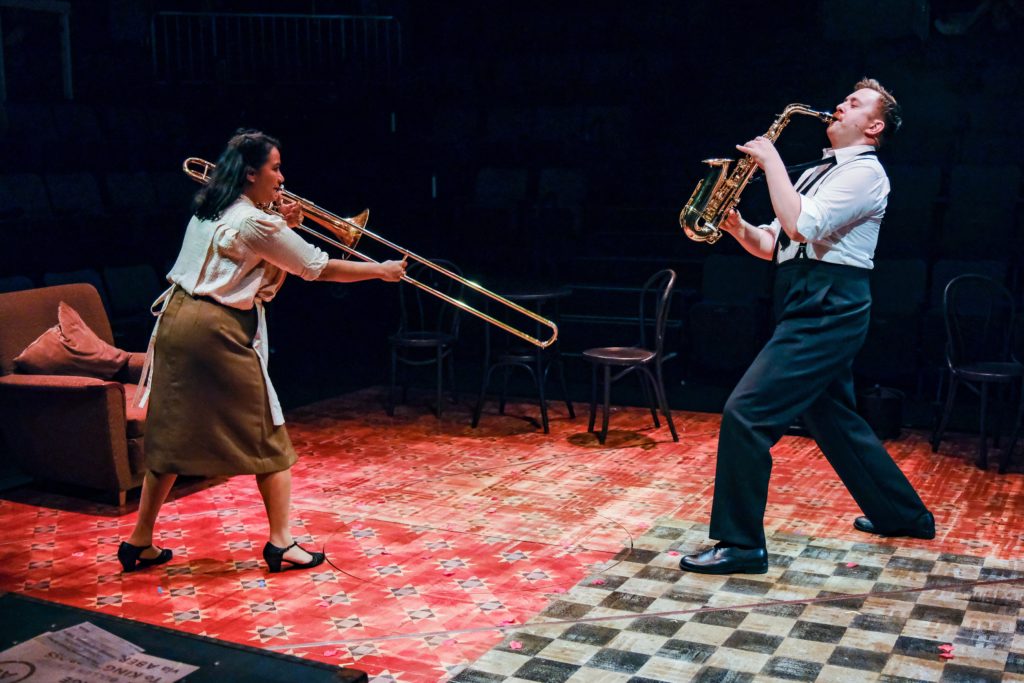
Robinson’s cast, attired in period detail to the T, are all terrific, whether the two leads with that ever-so-English restraint or Jackson’s diverse trio of roles or Lewis’s boundless energy.
Two moments define why this Brief Encounter demands a trip to the coast. Firstly, when Jackson’s Albert serenades Myrtle with a saxophone, she trumps him with a honking trombone. Glorious fun!
And, finally, the finale. Rice had described her reading of Coward’s texts as “slightly more feminist”. “Laura is trapped and I’ve given her some romantic hope,” she said in 2007. “She doesn’t run away, but I think you will feel that something has happened to her. I can’t condemn her to a dull life with husband Fred, I just can’t.”
The look on Piazza’s face in the lingering, silent coda says it all: note perfect, in keeping with Robinson’s touch throughout.
By Charles Hutchinson
